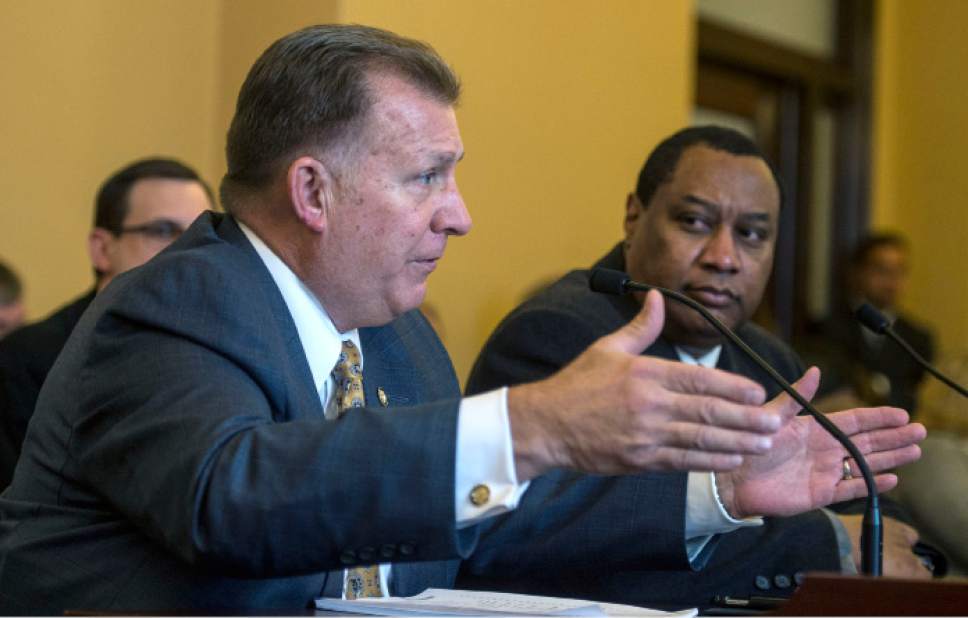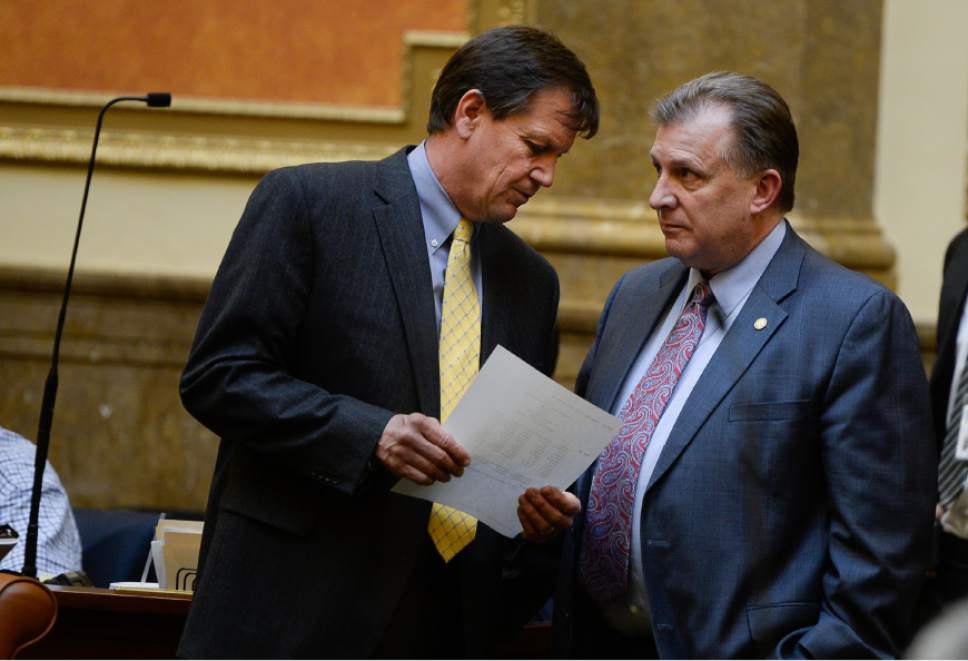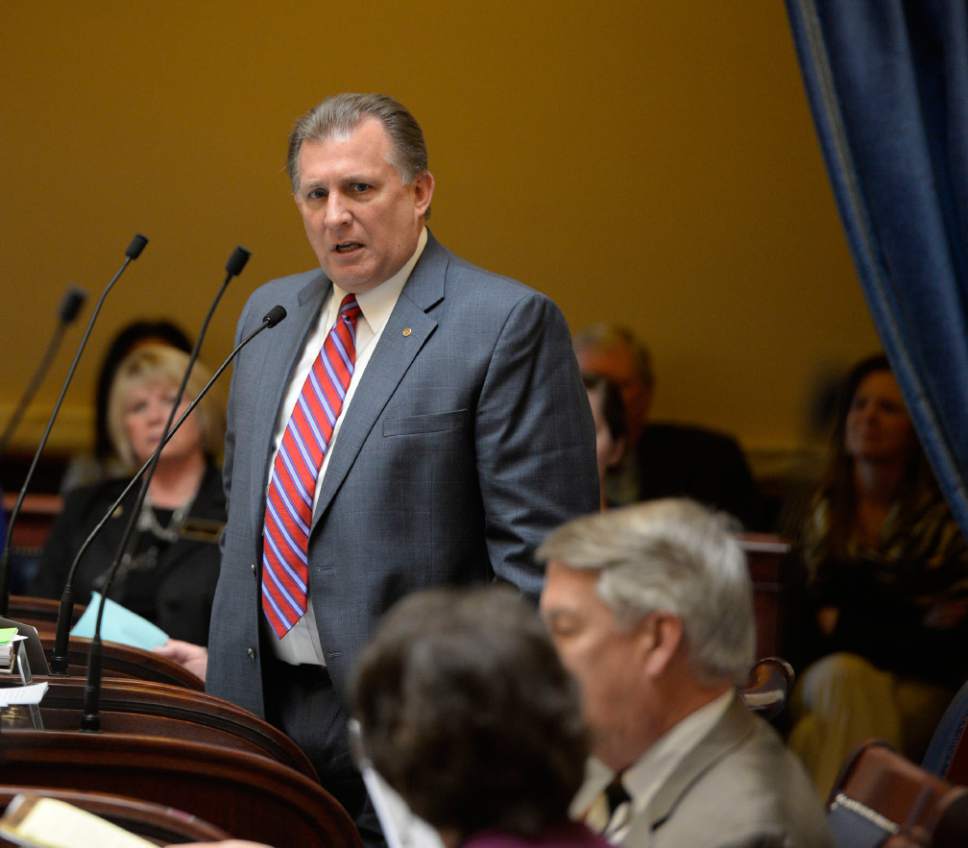This is an archived article that was published on sltrib.com in 2017, and information in the article may be outdated. It is provided only for personal research purposes and may not be reprinted.
A lingering issue from the 2014 fight over SB54 and Count My Vote took a step toward resolution Wednesday, with the Utah Senate giving preliminary approval to a bill creating runoff elections for crowded party primary elections.
Senators voted 28-0 for SB114, which allows for a runoff election in the event that four or more candidates run for a partisan nomination and no one candidate receives more than 35 percent of the vote.
The bill requires an additional vote in the Senate before moving to the Utah House.
"This does more to open the ballot and respect the people's wishes at the ballot box," said bill sponsor Sen. Curt Bramble, R-Provo.
SB114 is intended to resolve concerns stemming from SB54, which allows political candidates to bypass their party's caucus and convention nominations and reach the primary ballot by gathering signatures.
Critics of that law, drafted to stop the Count My Vote ballot initiative that would have eliminated the caucus and convention system, have argued that signature-gathering makes it possible for large numbers of candidates to fill the ballot, which in turn could result in a plurality winner receiving a small share of the total vote.
The Utah Republican Party sued the state in response to SB54, and its leaders have stated that ongoing litigation would be suspended if lawmakers satisfactorily addressed the plurality issue.
Utah GOP Chairman James Evans said Wednesday that the party has avoided dictating how plurality should be addressed, but is ready to see the issue resolved.
"We want to make sure the person who receives the nomination has significant support from that particular party," he said.
Wednesday's Senate vote came after Bramble's bill was moved to the top of the chamber's reading calendar. That was done to demonstrate the will of the Senate, Bramble said, ahead of a Saturday meeting of the Utah Republican Party's Central Committee.
"If we are successful in addressing plurality," Bramble said, "we believe it will go a long way and we believe the Republican Party will drop their legal challenge."
The bill would create an August runoff election between the two highest vote earners in a party primary. Elections in odd-numbered years, including nonpartisan municipal and school board races, would be unchanged by SB114.
"This deals with all partisan elections in the even-numbered years," Bramble said. "This bill doesn't change anything for nonpartisan races."
A statewide runoff election is estimated to cost $2.9 million, but those elections would occur, at maximum, once every two years.
Bramble said lawmakers are looking at setting funding aside in reserve for potential runoff election, but that the bill would function as "safety valve" in relatively rare election cycles.
"Not one race in 2016 would have qualified for a runoff," he said.
Senate President Wayne Niederhauser, R-Sandy, said lawmakers are optimistic that SB114 will satisfy the objections of the Utah Republican Party. But he added that there are no guarantees the party's Central Committee will vote to abandon its lawsuit.
"We live a life of uncertainty in the Legislature," he said.
Bramble said he has worked to address the concerns of Utah's political parties. But he emphasized that the fundamental principle behind elections is to respect the will of the voters over the needs of specific organizations.
"It's the people's ballot," Bramble said, "not any political party's ballot."
Twitter: @bjaminwood







